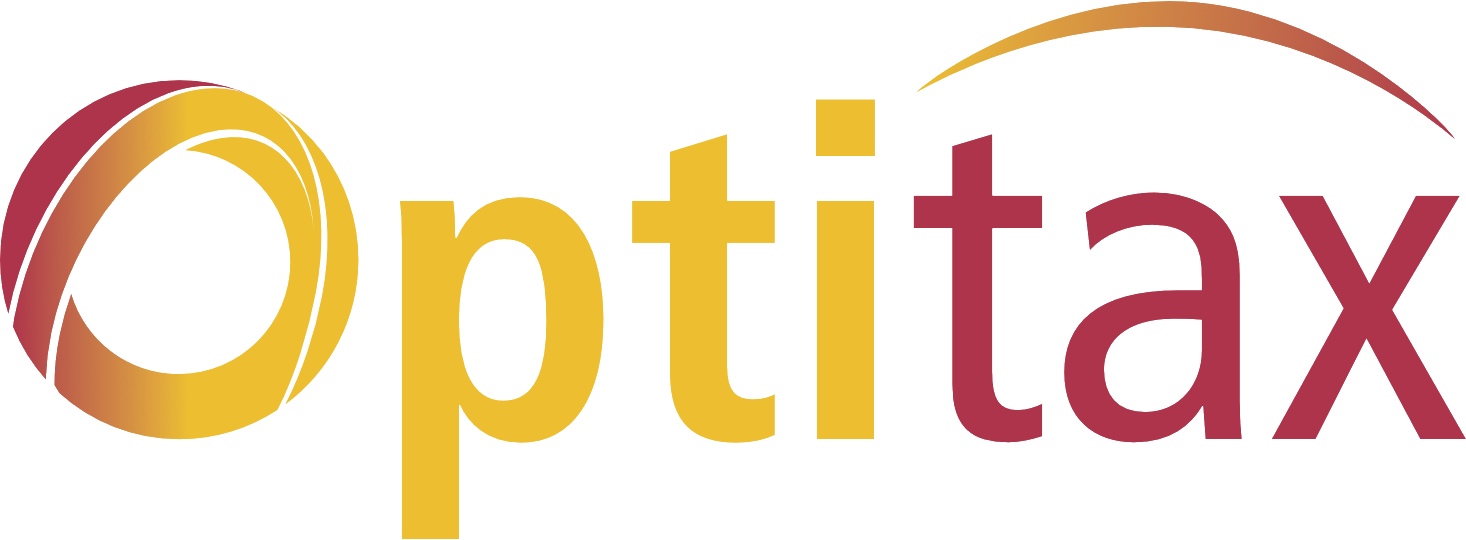Our Services

Accounting
Delivering professional accounting services, from maintaining financial accounting records to the preparation of statutory financial accounts. We can also develop accounting systems to support your specific needs.

Tax Return Preparation
Our tax agents structure tax return interviews to ensure all occupation-specific deductions are covered and that you receive the best possible outcome on your annual tax return.

Bookkeeping
Our bookkeepers relieve take care of your business’ day-to-day record keeping, including the preparation of annual accounts and Business Activity Statements (BAS).

Tax Financial Advice
At Optitax we have registered and experienced staff to assist you in meeting your tax obligations. Contact us to discuss your finance needs.

Tax and Estate Planning
Our professional consultants are available to discuss to your tax and estate planning requirements.

Superannuation
Talk to Optitax about establishing a Self Managed Super Fund (SMSF). We can assist with the full administration of the fund, as well as preparation of financial statements and regulatory returns.
Our Team

Stewart Milne
Director | Senior Accountant TAN26224850
Ina Simoni
Accountant | Compliance Manager TAN26224871
Liz Brush
Accountant
Julie Cole
Bookkeeper
Tiffany Stingel
Accounting AssistantClients’ Feedback



Optitax News
FAQs
What do accountant's do?
Accountants are responsible for preparing and examining financial records, ensuring their accuracy, and making sure that taxes are paid properly and on time.
How can accountant's help with tax planning?
Accountants can help with tax planning by analyzing financial situations to provide strategies for minimizing tax liabilities, maximizing tax credits, and ensuring compliance with tax laws and regulations.
I can do my tax online now – why should I come to an accountant instead?
While online tax filing has become increasingly popular, there are several compelling reasons to consider engaging with an accountant for your tax needs:
-
Complex Tax Situations:
-
If your tax situation is complex due to factors such as self-employment income, investment properties, capital gains, or international tax implications, an accountant can provide personalized guidance and ensure that all relevant tax deductions and credits are considered.
-
-
Maximizing Tax Benefits:
-
Accountants have the expertise to identify and maximize tax benefits specific to your situation. They can help you take advantage of available deductions, credits, and tax-saving opportunities that may be overlooked in a generic online filing process.
-
-
Tax Planning and Advice:
-
Accountants offer strategic tax planning advice beyond the scope of online tax filing. They can help you plan for future tax liabilities, provide guidance on estimated tax payments, and offer insights into structuring your finances to minimize tax burdens.
-
-
Navigating Complex Tax Laws:
-
Tax laws and regulations are constantly evolving. Accountants stay abreast of these changes and can interpret complex tax laws to ensure compliance and prevent potential errors that may arise from relying solely on online tax filing tools.
-
-
Audit Support and Representation:
-
In the event of an audit, having an accountant who is familiar with your tax situation can provide valuable support and representation, potentially saving you time and stress associated with addressing audit inquiries.
-
-
Personalized Attention:
-
An accountant can provide personalized attention to your financial situation, addressing any specific concerns or questions you may have. This level of personalized service is often lacking in online tax filing platforms.
-
-
Financial Planning and Advice:
-
Beyond tax matters, accountants can offer comprehensive financial planning advice, including retirement planning, investment strategies, and estate planning, to help you achieve long-term financial goals.
-
-
Peace of Mind:
-
Engaging with an accountant offers peace of mind, knowing that your tax matters are being handled by a qualified professional who can provide tailored solutions to your financial needs.
-
While online tax filing can be suitable for simple tax situations, the expertise, personalized guidance, and comprehensive financial advice offered by accountants can provide significant value, especially for individuals with more complex financial circumstances.
What do I need to complete my tax return?
To complete your tax return, you will typically need the following documents and information:
-
Personal Information:
-
Full name, Social Security Number (SSN) or Individual Taxpayer Identification Number (ITIN), and date of birth for yourself, your spouse (if filing jointly), and any dependents.
-
-
Income Documents:
-
W-2 forms from all employers for wages, salary, and tips earned.
-
1099 forms for other income sources such as freelance work, interest, dividends, and retirement account distributions.
-
Documentation of any income from rental properties, investments, or self-employment.
-
-
Expense Records:
-
Receipts and records for deductible expenses, including business expenses, medical expenses, charitable contributions, and educational expenses.
-
-
Proof of Deductions and Credits:
-
Documentation for any deductions and credits you plan to claim, such as mortgage interest, property taxes, education expenses, and retirement contributions.
-
-
Health Insurance Information:
-
Form 1095-A, 1095-B, or 1095-C to verify health care coverage, as well as details of any premium tax credits received.
-
-
Bank Account Information:
-
If you are due a refund, you will need your bank account details for direct deposit.
-
-
Previous Tax Return:
-
Having a copy of your previous year’s tax return can be helpful for reference and to ensure consistency in reporting.
-
-
Other Relevant Documents:
-
Any other documents related to significant life events during the tax year, such as marriage, divorce, or the birth of a child, which may have tax implications.
-
It’s important to keep in mind that the specific documents required may vary based on individual circumstances, so consulting with a tax professional or using tax preparation software can provide personalized guidance for your tax return.
Why do I need a bookkeeper for my business?
Having a bookkeeper for your business is important for several reasons:
-
Accurate Financial Records: A bookkeeper ensures that all financial transactions are accurately recorded, providing a clear and up-to-date picture of the company’s financial position. This is essential for making informed business decisions and meeting compliance requirements.
-
Time and Cost Efficiency: By handling financial record-keeping tasks, a bookkeeper frees up valuable time for business owners and staff, allowing them to focus on core business activities rather than getting bogged down in administrative work.
-
Tax Compliance: A good bookkeeper helps ensure that the business is compliant with tax laws and regulations by maintaining accurate financial records, which is essential for tax filing and minimizing the risk of audits.
-
Financial Analysis and Reporting: A skilled bookkeeper can generate financial reports and analysis that help business owners understand their company’s performance, identify trends, and make strategic decisions.
-
Cost Control and Budgeting: By tracking expenses and income, a bookkeeper can help identify areas where costs can be controlled, and assist in creating and managing budgets to ensure the business operates within its means.
-
Business Growth and Funding: Well-maintained financial records and reports prepared by a good bookkeeper can be crucial when seeking funding from investors or financial institutions, as they demonstrate the business’s financial stability and potential for growth.
-
Audit Preparation and Support: In the event of an audit, a good bookkeeper can provide organized records and support, simplifying the process and reducing the stress associated with such events.
-
Financial Strategy and Planning: A skilled bookkeeper can work alongside business owners and accountants to develop financial strategies and plans that align with the company’s goals and vision.








